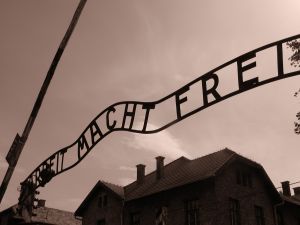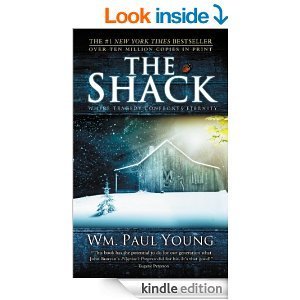 If you think too long or look too deeply into crime fiction, as I often do, you eventually wind up facing some tough issues of morality. Namely, what makes people do bad things?
If you think too long or look too deeply into crime fiction, as I often do, you eventually wind up facing some tough issues of morality. Namely, what makes people do bad things?
Flesh that one out long enough, or speed things up with a couple beers, and you'll probably run into the Problem of Evil. This is a major sticking point in a lot of religious discussions. Why would an all-powerful deity (or deities, if you roll that way) allow bad things to happen? Why is there suffering in the world?
It's a topic I mull over myself, in and out of reading fiction. I'll save those expositions for another day, but I did want to bring up The Shack, a book by Wm. Paul Young popular in Christian fiction. That's not an area I read a lot of material in, but a family member loaned me the book after a discussion about religion and the Problem of Evil. It also frames its philosophy inside a murder mystery. I figured I'd keep an open mind and give it a shot.
The following is the review I posted on Amazon and elsewhere. If you read it, what did you think about it?
***
 In order to get the full benefit of The Shack, you're required to buy into several concepts about religion, existence and purpose. Once you do, the Problem of Evil, the central question the book seeks to answer, can be reconciled.
In order to get the full benefit of The Shack, you're required to buy into several concepts about religion, existence and purpose. Once you do, the Problem of Evil, the central question the book seeks to answer, can be reconciled.
That wasn't good enough for me. I wanted a response to the Problem of Evil without preconditions. And that's why The Shack didn't work for me. Despite its popularity, it's just a retread of the same Christian ideas about why suffering exists and why God does not intervene.
The Shack boils the argument down to this: Bad things happen because Adam and Eve, after given free will, chose independence. War, crime, murder, poverty, etc. are all results of that choice. Humanity can end suffering by turning back toward God. You should be OK with suffering even if you don't understand why and are a good person anyway, so long as you have faith.
As for events not under human control - natural disasters, diseases, etc. - that's all part of a grand plan that the book compares to a mismanaged garden or a fractal. You should be OK with random, awful events because they have a beauty and purpose all their own that can't be comprehended by anything other than the divine.
These arguments were the same ones I wasn't satisfied with in the first place going into The Shack. There's not much new here, only an original approach to the run-of-the-mill "person has frank conversation with God" genre. I don't feel I got any further after reading this story.
If you want to take a bolder look at Problem of Evil questions, Christopher Hitchens offers better perspectives on possible answers - and he's arguing from an atheistic position. Or if you're afraid Hitchens' books will light on fire, give C.S. Lewis's The Problem of Pain a try instead.
 newest »
newest »
 newest »
newest »
 Thanks for the comment, Jackson. Glib answers is what I was hoping to avoid with this read, but it turned out to be the same answers I wasn't happy with in the first place. I think the best crime fiction lets people probe those darker questions from a safe distance, and that's why it's so appealing.
Thanks for the comment, Jackson. Glib answers is what I was hoping to avoid with this read, but it turned out to be the same answers I wasn't happy with in the first place. I think the best crime fiction lets people probe those darker questions from a safe distance, and that's why it's so appealing.

 If you think too long or look too deeply into crime fiction, as I often do, you eventually wind up facing some tough issues of morality. Namely, what makes people do bad things?
If you think too long or look too deeply into crime fiction, as I often do, you eventually wind up facing some tough issues of morality. Namely, what makes people do bad things?



The story goes that Eve ate of the fruit of the tree of the knowledge of good and evil. Rather than leaving a legacy of sin, she left us with a legacy of asking what is right and wrong. Thus, she left us the legacy of being human.